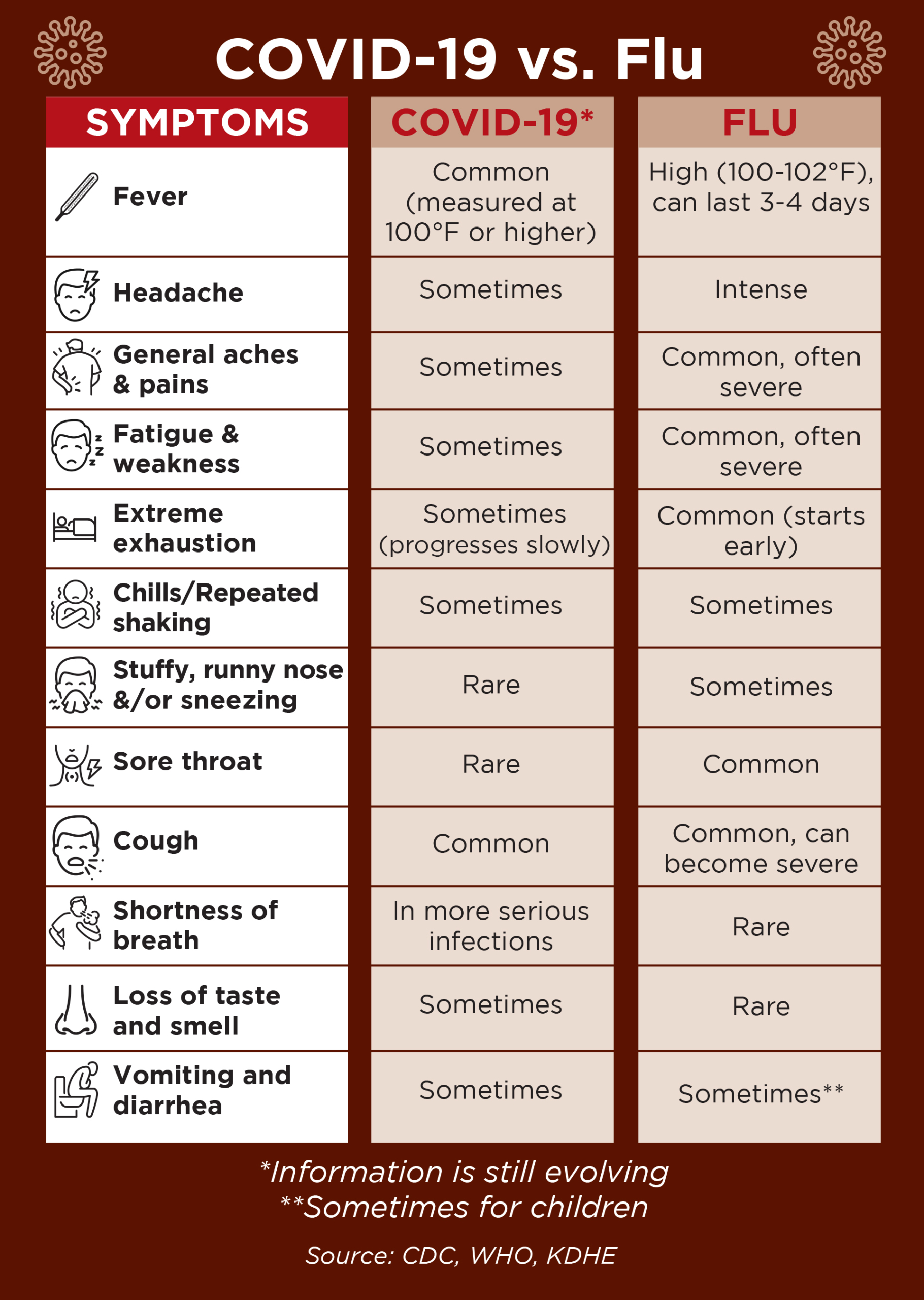Why COVID-19 makes getting your flu shot more important than ever
Prevent having COVID-19 and the flu simultaneously while protecting your local healthcare systems
WATCH: Dr. Elise Sullivan, family medicine provider at MRH, answers questions about the importance of getting the annual flu shot. She explains who should get a flu shot every year and why they should, and she explains how they work and when people should get their vaccines. She also elaborates on common misconceptions her patients have about flu shots.
As flu season gets underway in the midst of the COVID-19 pandemic, healthcare experts are urging people to get their flu shot. Not only will this help to protect themselves and those around them from the virus this fall and winter, but it’ll also help to ensure healthcare systems don’t get overwhelmed by an influx of COVID-19, influenza and other respiratory patients.
In a typical flu season, less than half of all Coloradans get a flu shot, according to the Colorado Department of Public Health and Environment. Data shows that only about 45 percent of those over the age of 6 months received their influenza vaccine in 2017-2018, which is the most recent data available. The vaccination rate in the state has been on a steady decline since the 2013-2014 flu season, when the vaccination rate peaked at 51 percent.
Nationwide, the flu causes thousands of deaths per year — nearly 600 of which were in Colorado in 2018 — and is the most frequent cause of death from a vaccine-preventable disease. When combining this number with the more than 200,000 COVID-19-related deaths since February — more than 2,000 of which were in Colorado — healthcare experts are worried both viruses will peak simultaneously.
The biggest difference between COVID-19 and the flu is that the flu is a familiar foe with a safe and effective vaccine studied and developed by experienced scientists each year. The flu season typically lasts from October through May, typically peaking in December and again in February, according to the Centers for Disease Control and Prevention (CDC). COVID-19 does not have a vaccine and is expected to peak again sometime during flu season this year.

Dr. Netana Machacek
Dr. Netana Machacek, family medicine physician at Memorial Regional Health, suggests individuals get their flu shots in September or October to allow the body time to build up its defenses before being exposed to the virus. However, it’s never too late to get the vaccine.
“If the flu is still going around at the end of flu season, it is still worth getting vaccinated against it, usually until April or May,” she explained.
Importance of getting your flu shot — now and in the future
Flu shots have always been a matter of public health, but their importance is heightened this year due to the pandemic. Studies have shown those who get a flu shot can reduce their risk of flu illness by 40 to 60 percent, according to the CDC.
Nearly everyone is eligible to get a flu shot, according to Dr. Machacek, as most people older than 6 months old can benefit from the vaccine and protect those around them. The flu shot is especially crucial for individuals with underlying medical conditions, such as asthma or COPD, because these groups are at higher risk of complications from influenza.
Each year, the flu shot is formulated to fight the latest strains of the virus. Nearly a year in advance, scientists try to predict which strains will be common the following year, and the vaccine is designed to help your body recognize those strains.
“The flu shot gives your body inactivated, or dead, sample pieces of the flu virus,” Dr. Machacek explained. “Your body uses those pieces to create antibodies, an important part of the immune system. The antibodies help your immune system recognize the virus and fight it off later.”
It takes about two weeks after inoculation to develop an immune reaction to the flu, and in that time, individuals can still be susceptible to infection, Dr. Machacek said. The most common reactions to a vaccine are redness or swelling in the area the shot was given, but that does not mean the person is allergic to the flu shot.
Other than keeping you and those around you healthy, benefits of the vaccine include reducing the risk of flu-associated hospitalization, offering protection for women during and after pregnancy, preventing flu-related deaths in young children and reducing the severity of the illness in people who get vaccinated but still get sick.

LOOK: An infographic explains the main symptom differences between the seasonal flu and COVID-19.
Preparing for COVID-19 and the flu
The seasonal flu and COVID-19 are spread similarly, typically through droplets created when an infected person coughs, sneezes or speaks within 6 feet of another person. They present similar symptoms, such as fever, cough and sore throat, making it hard to tell the difference based on symptoms alone. Diagnosis cannot be confirmed without testing.
“Most years, getting a flu shot can help you avoid missing days of work or school due to illness,” Dr. Machacek said. “This year, it’s more likely that even mild symptoms such as sneezing, coughing or a sore throat will require lengthy school and work absences as we prove that the symptoms are not due to COVID-19.”
To be clear, getting a flu shot won’t protect you from COVID-19. However, it can lessen your chances of having the flu and COVID-19 at the same time, which is possible because the viruses are two completely different species. It’s already hard enough for your body to fight off one of these diseases but having to fight off both simultaneously could spell trouble — especially for more vulnerable populations like the elderly.
Dr. Machacek said getting a flu vaccine this year can help decrease the risk of serious illness in the community and the number of flu-related office visits and hospitalizations, meaning healthcare systems are less likely to become overwhelmed.
“The more cases of serious illness that happen at the same time in a community, the more likely that we will not have the staff and equipment to handle it,” she explained.
Think of it this way — an influx in COVID-19 cases could fill ICUs so that even just a mild flu season could overflow hospitals. This means there will be less capacity for the patients seeking treatment for these diseases, as well as patients who are seeking intensive care for other incidents such as heart attacks or trauma accidents.
Current information shows COVID-19 can be contagious up to 10 days after symptoms present, while the flu can be contagious for 5 to 7 days after the start of symptoms. For some individuals, both infections can be contagious for longer periods of time, so talk to your healthcare provider about your risk of spreading the illnesses.
“At a minimum, getting a flu shot can help our community stay healthy while doing our jobs and attending school, which is important for our economy,” Dr. Machacek said. “In a worst-case scenario, it could help us prevent equipment and staff shortages at our local healthcare facilities, preserving our resources to take care of patients that are critically ill with COVID or other diseases.”
Get your flu shot
Memorial Regional Health will offer flu shots at its clinic locations in Craig. Staff can bill all insurance carriers and provide vaccines for uninsured children over the age of 6 months.
Adults who wish to pay cash for a flu shot can go to the Community Pharmacy, located at 750 Hospital Loop. Cost is $25 for regular flu shots and $60 for high-dose (for people older than 65) and Flublok (for people with an egg allergy) shots.
Community members are welcome to attend one of MRH’s walk-in flu shot clinics listed below.
LOCATION: First floor of the MRH Medical Office Building, 750 Hospital Loop:
- Thursday, Oct. 15:
5 – 7 p.m. - Saturday, Oct. 17:
10 a.m. – noon - Wednesday, Oct. 21:
5 – 7 p.m. - Thursday, Oct. 29:
5 – 7 p.m.
No appointments are necessary to attend any of these clinics. MRH will accept all forms of payment, including cash, commercial insurance, Medicare and Medicaid.
What to do if you are experiencing symptoms
Dr. Netana Machacek, family medicine physician at MRH, recommends treating all symptoms of COVID-19 and the flu similarly. If you are experiencing symptoms, she recommends:
- Avoiding contact with others while you have symptoms.
- Staying at home to rest and drink plenty of fluids.
- Seeking medical attention if you develop difficulty breathing or other serious symptoms.
- Getting a test done to determine if you are still contagious after symptoms have resolved — especially if you need to get back to work or school.
For more information about COVID-19 protocols at MRH, learn more here.
Tips for staying healthy this fall and winter
Fortunately, getting a flu shot is only one of many ways to stay safe this fall and winter. Some other ways to keep you and your family healthy as we head into the chillier months include:
- Avoiding touching your face, specifically your eyes and mouth.
- Practicing physical distancing, and avoiding crowds and unnecessary travel, when you can.
- Washing your hands frequently with soap and water. Hand sanitizer is a good alternative if soap and water are not immediately available.
- Avoiding hand-to-hand contact; for example, handshakes and high fives. Try fist pumps instead, and use your knuckles instead of fingertips for elevator buttons, doorbells, etc.
- Limiting contact with those who are sick. If you are sick, stay home.
- Frequently sanitizing high-touch surface areas with EPA-approved disinfectants.
- Taking preventative measures to stay healthy, such as getting adequate sleep, eating a nutritious diet and exercising regularly.
Together, we can ensure our community remains a healthy place to live for all residents.






